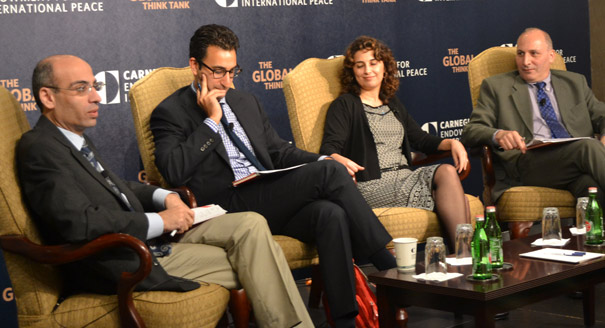Registration
You will receive an email confirming your registration.
In his first two months in office, Iranian President Hassan Rouhani has freed political prisoners, sent conciliatory tweets, and broken a thirty-four-year-old taboo by speaking with U.S. President Barack Obama. Is Tehran seeking a tactical nuclear compromise or even contemplating a fundamental strategic shift? How would a détente with America affect Iran’s internal political and societal dynamics? Ramin Jahanbegloo, Nazila Fathi, and Mehdi Khalaji offered their perspectives on recent developments. Carnegie’s Karim Sadjadpour moderated.
Ramin Jahanbegloo
Ramin Jahanbegloo is an Iranian political philosopher. He has published more than twenty books in Persian, English, and French, including most recently, Democracy in Iran. In April 2006 he spent four months in solitary confinement in Tehran’s Evin Prison, charged with trying to foment a velvet revolution. He is visiting Noor-York Chair in Islamic Studies at York University, and an advisory board member of PEN Canada.
Nazila Fathi
Nazila Fathi was Tehran correspondent for New York Times until she was forced to flee during the 2009 protests after threats from the Iranian government. She is currently writing a book about her experiences, and was recently a Shorenstein Fellow at the Harvard Kennedy School.
Mehdi Khalaji
Mehdi Khalaji is a senior fellow at The Washington Institute for Near East Policy, focusing on the politics of Iran and Shia groups in the Middle East. Born in Qom and a Shia theologian by training, Khalaji is currently writing a biography of Supreme Leader Ayatollah Ali Khamenei.
Karim Sadjadpour
Karim Sadjadpour is a senior associate at the Carnegie Endowment. A leading researcher on Iran, he has conducted dozens of interviews with senior Iranian officials and hundreds with Iranian intellectuals, clerics, dissidents, paramilitaries, businessmen, students, activists, and youth, among others.
